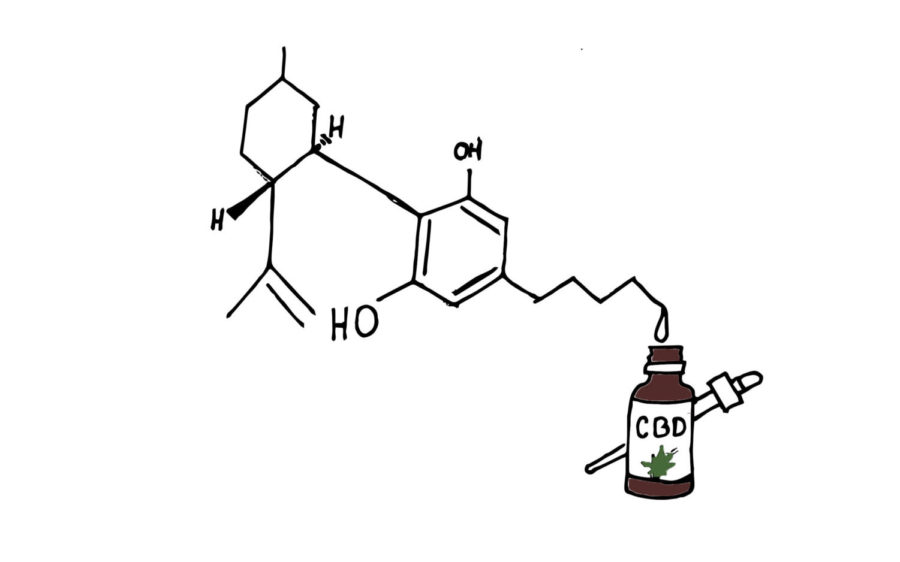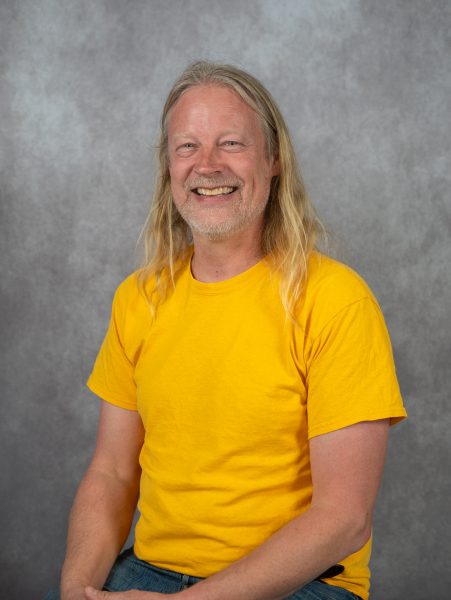Anxiety. Insomnia. Depression. Headaches. As the pressures of survival in present day Sonoma County mount for local students, so, too, do the health consequences.
For some students, the negative effects of stress can lead to the abuse of alcohol and recreational drugs. For others, it results in expensive medical bills.
Many of those who take prescription medication experience its unpleasant side effects.
But there may be a natural remedy for many of modern life’s stress-induced ills. It’s called CBD, and it’s available throughout Sonoma County and California, without prescription.
Everest Rosa-Barnett, 18, a first year student at Santa Rosa Junior College, used CBD ointment for a leg cramp and found it relaxed the muscle and alleviated the pain. He would “absolutely” use it again, adding that his grandmother used it regularly for the last year for rheumatoid arthritis.
“It makes the pain go away,” Rosa-Barnett said.
CBD, short for cannabidiol, is the second most prevalent of the 60 cannabinoids found in marijuana, after THC.
Mark Brocker, manager-on-duty at local marijuana dispensary SPARC in Sebastopol, said CBD was first recognized as the chemical compound in marijuana responsible for “body” sensation as opposed to the mental “high” caused by THC.
Subsequent medical research revealed strong anti-inflammatory properties. From there CBD became an alternative health product and gained national attention as a cure-all for any number of aches and pains, purportedly without any debilitating side effects.
SPARC customers use CBD to treat illnesses, including cancer and rheumatoid arthritis, with varying results.
SPARC sells CBD in numerous forms—as an edible, a topical, raw for smoking, a tincture and in cartridges for vaping. Because state law requires SPARC, and all marijuana dispensaries, to sell products containing some measure of THC, customers must be 21 or possess a medical prescription.
However, local health food stores sell over-the-counter CBD. These versions, usually lotions or ointments, are derived from hemp, which does not contain THC. No age requirement exists for this CBD because it contains no psychoactive component.
But does CBD live up to the hype?
In his article “Cannabidiol (CBD) — what we know and what we don’t,” Dr. Peter Grinspoon, a contributing editor to the Harvard Medical School Health blog, writes that research shows CBD effectively reduces pain, anxiety and seizures. It can also effectively treat insomnia for some.
A February poll of 50 random Santa Rosa Junior College students on the Santa Rosa campus indicated 36 percent knew of CBD and 22 percent took it to treat ailments including pain, PTSD, sciatica, insomnia, arthritis, fibromyalgia and vision problems. Of those who’d used it, 91 percent found it effective and would try it again.
SRJC student Haydn, 22, who didn’t want to give a last name for reasons of privacy, uses a CBD tincture her sister gave her for insomnia and found it extremely effective.
“Instantly I could get a good night’s sleep,” Haydn said. “I’m a believer.”
She even convinced her mom to use a salve.
CBD success stories are numerous.
Matt Khouri, 20, a junior at Sonoma State University junior, began using CBD two-and-a-half years ago. He learned about it before he started college and now uses it almost every day to treat his anxiety and insomnia.
He estimates nearly half his friends do, too.
“You can still feel productive without feeling like you’re stressed out,” Khouri said.
“My best friend’s sister went from having a seizure a day to having one once a month, just by using [CBD] tinctures every day,” Khouri said. “Her parents would always talk about other medications they tried and said the side effects were so bad that the seizures were almost preferable.”
His mother now uses it to treat her neck pain and relax tense muscles.
“CBD helps you deal in the short term,” said Leona Dang-Kilduff, regional perinatal programs of California coordinator for North Coast, East Bay and Mid-Coastal California.
She’s seen CBD help veterans, college students, assault victims and people with anxiety and depression.
Dang-Kilduff confirmed CBD helps reduce some types of seizures, isn’t neuroactive and doesn’t impair brain function (unlike THC), is anti-inflammatory, loosens muscles and helps people sleep. It also shows promise in reducing anxiety and depression and in treating PTSD. Furthermore, there is no indication CBD slows brain development, while THC does.
On the negative side, no studies exist on its long-term effects, and its effects sometimes fade with frequent use, making it a short-term solution.
The bottom line? According to Grinspoon, CBD’s effectiveness varies and more research is necessary to determine long-term effects.
Meanwhile, CBD’s popularity keeps growing at SPARC Sebastopol.
“Most of the people who walk in this door are done with Western medicine,” Brocker said. “Nothing is working. So hopefully (they) can find something in here that does.”




